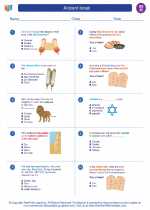Harriet Tubman
Harriet Tubman was an African American abolitionist, humanitarian, and Union spy during the American Civil War. She was born into slavery in Maryland in the early 1820s and escaped to freedom in the North in 1849. Tubman is best known for her work as a "conductor" on the Underground Railroad, a network of safe houses and routes that helped enslaved people escape to free states and Canada.
Early Life and Escape from Slavery
Harriet Tubman was born Araminta Ross in Dorchester County, Maryland, around 1822. She endured the hardships of slavery from an early age and suffered physical abuse at the hands of her enslavers. In 1849, Tubman escaped from slavery, making her way to Philadelphia and later settling in New York. Her own escape fueled her determination to help others find freedom.
Underground Railroad and Abolitionist Work
After her own escape, Tubman made numerous dangerous journeys back to the South to lead other enslaved individuals to freedom. She became one of the most well-known conductors on the Underground Railroad, making at least 13 missions and rescuing approximately 70 enslaved people. Tubman's bravery and ingenuity made her a legendary figure in the fight against slavery.
Civil War and Later Life
During the Civil War, Tubman worked for the Union Army as a nurse, scout, and spy. She played a key role in planning and executing a raid that liberated over 700 enslaved people in South Carolina. After the war, Tubman continued her humanitarian work, advocating for women's suffrage and the rights of African Americans. She also established a home for elderly and indigent African Americans.
Legacy
Harriet Tubman's legacy as a fearless liberator and activist for human rights endures to this day. She is an iconic figure in American history, and her contributions to the abolitionist movement and the Civil War continue to inspire people around the world.
For further information and resources, you can visit the official Harriet Tubman website.
[Harriet Tubman] Related Worksheets and Study Guides:
.◂Social Studies Worksheets and Study Guides Eighth Grade. Ancient Israel

 Worksheet/Answer key
Worksheet/Answer key
 Worksheet/Answer key
Worksheet/Answer key
 Worksheet/Answer key
Worksheet/Answer key
